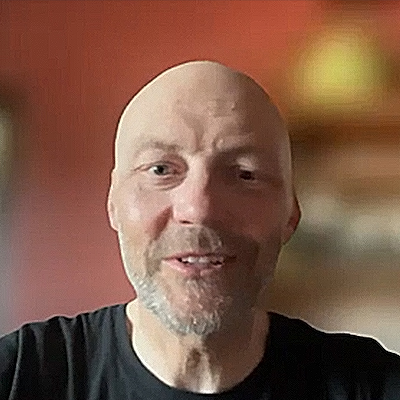Debunking 13 Common Myths About Schizophrenia: How to Seek

Written by
Shebna N. Osanmoh
Reviewed by
Dr. Ryan Ley- Schizophrenia is a complex but treatable mental health condition, not a “split personality.”
- Myths about violence, intelligence, and causes are harmful and untrue.
- Early intervention, support, and proper treatment can help people with schizophrenia lead fulfilling lives.
- Education and empathy reduce stigma and improve outcomes for those affected.

Despite the growing awareness about mental health, some disorders are still shrouded in misconceptions. There are loads of half-truths and myths that make it hard to understand what’s happening.
Take schizophrenia, for instance. It’s a complex mental disorder that sometimes messes with a person’s ability to think clearly and can make them believe stuff that isn’t true. Did you know that almost 1.1 percent of US adults, around 2.8 million, deal with schizophrenia?
It might seem rare, but schizophrenia is actually one of the top 15 leading causes of disability around the world. What’s even more heartbreaking? According to the National Institute of Mental Health, people suffering from it can lose up to 28.5 years of their lives.
So, let’s set the record straight and dive into some myths and truths about schizophrenia. It’s always better to be in the know, right?”
Common myths about schizophrenia and facts
What Makes Emotions Harder to Handle Here
Even though schizophrenia is now a single diagnosis, the symptoms change from person to person. Some people with schizophrenia see or listen to things that aren’t there. In contrast, others have trouble paying attention, recalling something, and staying focused.
In fact, individuals with schizophrenia may have distinct symptoms at different times, and the intensity of the symptoms may change due to environmental factors from person to person or from episode to episode.
The Diagnostic and Statistical Manual of Mental Disorders, Fourth Edition (DSM-4) even broke schizophrenia into different types:
- Paranoid – Having a lot of doubts or feelings of persecution, such as you’re being watched.
- Hebephrenic or disorganized – It is a mental disorder that isn’t caused by delusions or dreams. Jumbled thoughts, bad emotional reactions, and speech problems characterize it.
- Undifferentiated – a combo of signs of schizophrenia, like being confused and paranoid.
- Residual – A lower level but intense hallucinations or delusions and more “negative” symptoms, like a flat affect, slow speech, and lack of drive.
- Catatonic – Catatonic means that the person barely moves or interacts with the world around them or speaks or moves like someone else.
But these groups were removed for different reasons when the Diagnostic and Statistical Manual of Mental Disorders, Fifth Edition (DSM-5) came out in 2013. Now, these groups are thought of as signs of schizophrenia.
Take Action Today: Your Mental Health Roadmap
This is one of the most common things people get wrong about schizophrenia. One survey found that 64% of Americans think the disease is Dissociative identity disorder or DID, which means that the person acts like they are more than one person, a.k.a multiple personalities.
This is different from DID, which was previously called multiple personality disorder. Schizophrenia is not a split personality but a split from reality, also identified as hallucinations and delusions. Schizophrenia symptoms, like hearing sounds in your head or acting on false beliefs, are sometimes called “positive symptoms.” This implies they can feel things that aren’t there, or they might think things that aren’t true.
Supporting Someone Else
People with schizophrenia can sometimes act in strange ways, but most aren’t violent, especially if they’re under treatment. Violence is more likely to happen to people with schizophrenia. People with schizophrenia are also more apt to hurt themselves than others. There are a lot of suicides among people with schizophrenia.
When individuals with this mental health disorder do violent things, it’s generally because they have another problem, like bad behavior as a child or drug abuse. But having the problem doesn’t make you violent on its own.
Bayu Prihandito, Psychology Expert, Life Coach, Founder, and Life Architekture, believes that this schizophrenia misconception can lead to isolation and fear for both the individual with schizophrenia and those around them. To debunk this, people must emphasize the importance of emotional intelligence and mindfulness. “By understanding and empathizing with what someone with schizophrenia might experience, we can help create more supportive environments,” he added.
Myth 4: It’s caused by bad parenting
Most of the time, mothers are blamed. But schizophrenia is a disorder of the mind. Many things, such as genes, stress, and substance abuse, can cause it. Your mistakes as a parent won’t cause this in your child.
A popular form of substance abuse, Marijuana is linked to a higher chance of insanity, which is when a person loses touch with reality, and a higher chance of schizophrenia.
Tetrahydrocannabinol, or THC, is the part of marijuana that makes you feel high. According to a systematic review released in 2020 in the journal Cureus, these risks are most likely caused by THC.
So, bad parenting can’t be the sole reason for developing schizophrenia.
Myth 5: You’ll get schizophrenia if the parents do
Genes do have an effect. But just because one of your parents has a mental disorder doesn’t mean you will get it, too. Scientists don’t think genes are the only reason you could have a bit higher chance. Some bugs, not getting enough food before you are born, and other things can turn on your genes.
If one of your parents has schizophrenia, you also have a 10% chance of getting it. If more than one family member has it, your chance increases.
Myth 6: Individuals with schizophrenia are not intelligent
Some studies have discovered that individuals with the condition do worse on tests of mental skills like paying attention, learning, and remembering. But that doesn’t mean that they aren’t smart.
Throughout history, a lot of intelligent and artistic people have had schizophrenia. Scientists are even looking for links between genes linked to psychosis and creativity.
Myth 7: You must stay in a mental facility if you’ve got schizophrenia
Individuals with mental illnesses used to be locked up in asylums or even jails. But now that doctors know more about the disorder, fewer people must stay in long-term mental health facilities.
How much help you need will depend on how bad your symptoms are. People with schizophrenia often live independently, but some live with their families or in housing that helps them. It’s important to talk to your doctor often and have assistance to help you keep up with your care as needed.
Myth 8: With schizophrenia, you won’t be able to work full-time
Handling stress in the workplace becomes a headache for normal people. The situation will be much more challenging if you want to work full-time with schizophrenia. Getting a job and going to work every day with such mental health issues is difficult. But if they get the right help, many people can find jobs that match their skills and abilities.
Myth 9: People with schizophrenia become lazy
The illness can make it hard for someone to do things like get dressed and take a bath. This doesn’t mean they are “lazy.” They need help with their day-to-day tasks, that’s all. However, Laziness isn’t a mental health disorder but rather a habit. It has no connection with schizophrenia.
Myth 10: Schizophrenia only happens to intelligent people
Schizophrenia is one of the least known mental health conditions, so many media portrayals of the “genius with schizophrenia myth.” When people see these kinds of images, they might think schizophrenia symptoms are directly linked to being intelligent and creative.
That’s not true at all. Some studies have found a link between mental illness and creativity, but having schizophrenia doesn’t mean you’re smart.
There are a few people in history with schizophrenia who were very creative, such as Mary Todd Lincoln, John Nash, Eduard Einstein, Vincent van Gogh, John Hinckley, Jr., etc. However, there isn’t much proof that this is the case for most people with this disorder.
Myth 11: It happens all at once, like a psychotic break
As per Demian Rose, MD, PhD, the medical head of the UCSF Path Program at the University of California, San Francisco, it’s rare to experience a significant drop in everyday functioning. He said the UCSF Path program is for young people who are at risk of getting psychosis or who are having their first psychotic episode.
Schizophrenia, on the other hand, usually develops slowly. According to Dr. Rose, the first signs of this disease appear in adolescence. Here are some initial signs:
- Having thoughts that don’t feel like your own or finding everyday things strange, confusing, or scary.
- Developing misperception of reality, like a feeling that your mind is making unreal things.
- Getting paranoid thoughts that other people want you harm or being afraid of people.
- Experiencing confused thinking, such as being unable to understand what people are saying or having trouble remembering easy things.
- The feeling of withdrawal, like pulling away from people you care about or losing interest in everyday things.
In the early stages of schizophrenia, a person may not hear voices but may listen to whispers they can’t understand. So, experts suggest getting help during the “prodromal” stage is wise before schizophrenia starts.
Myth 12: People with schizophrenia are the only ones who see or hear things that aren’t there
In fact, many medical situations can cause hallucinations, which are when you hear, see, smell, taste, or feel things that don’t exist.
Among these problems are:
- Parkinson’s illness
- Alzheimer’s disease
- Different forms of dementia
- Brain tumor
- Epilepsy
- Migraines
In fact, as per the Schizophrenia & Psychosis Action Alliance (also known as The Schizophrenia and Related Disorders Alliance of America, or SARDAA), schizophrenia should be renamed as a neurological disease.
Myth 13: There’s no way to treat it
Schizophrenia is a long-term mental disorder that can be treated and managed like diabetes or coronary disease, says Irene S. Levine, Ph.D., a psychologist, and co-author of “Schizophrenia for Dummies”.
Treatments differ for each person based on their symptoms, risk factors, and needs. Taking antipsychotic medication and going to proper treatment are the best ways to treat schizophrenia.
Taking antipsychotic drugs can help lessen symptoms of hallucinations and delusions. Psychotherapy is also crucial as it helps reduce symptoms and helps to deal with stress, participate in daily activities, improve quality of life, and achieve important life goals. To heal schizophrenia, along with school or professional support, family support is also beneficial.
Where to get help for preventing Schizophrenia misconceptions
People confuse schizophrenia with other psychiatric disorders, forcing the patient to become socially isolated, lose their jobs, or face abuse because of widespread stereotypes and stigmas.
Fighting the schizophrenia myths can help people with the condition get better access to health care, jobs, and mental health programs. Misconceptions can also make it harder for family, friends, and coworkers to help someone with schizophrenia and psychotic symptoms.
People with schizophrenia or others who want correct knowledge about this schizophrenia and other mental health conditions can look at tools from several groups, such as:
- Schizophrenia & Psychosis Action Alliance – This group helps people with schizophrenia by giving them information and peer support.
- NIMH The National Institute of Mental Health (NIMH) is a group that provides resources and help.
- NAMI – NAMI is a group that teaches and helps people with mental illness. It also has more than 600 neighborhood stations all over the U.S.
- Mental Health America – Mental Health America is a group that helps people with mental health problems by giving them advocacy, support, and information.
